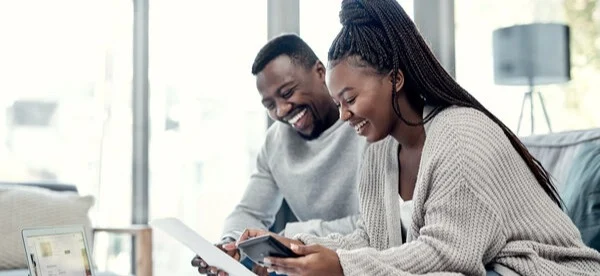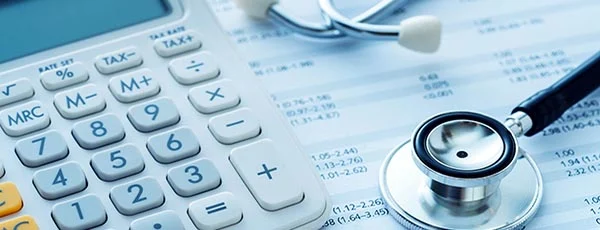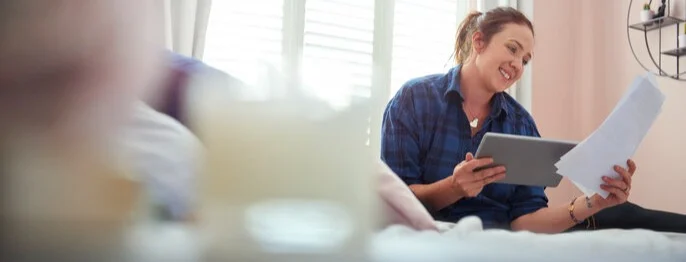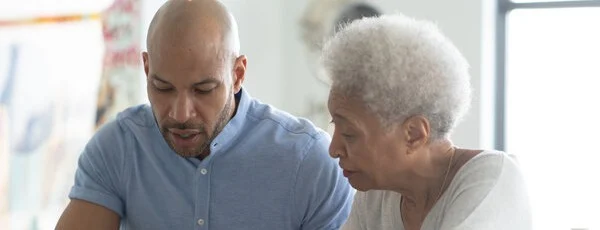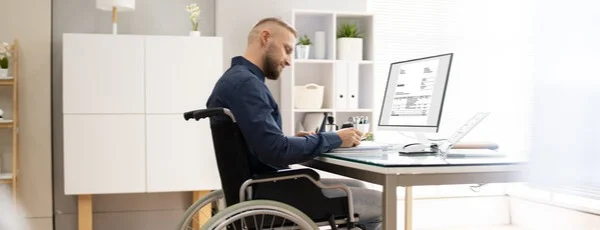
Get rid of your debt faster with debt relief
Choose your debt amount
Or speak to a debt consultant 844-731-0836
- 5 min read
- Utility bills, including electricity, gas, sewage, water, telephone, and internet, are an important part of your budget.
- There are many ways to pay utility bills, including online, mobile, check, credit card, or cash payments. Choose a system that helps you pay on time.
- If you're having trouble paying utility bills, you may be able to qualify for utility bill assistance programs.
- Start your FREE debt assessment
Table of Contents
Paying utility bills each month is a necessity. After all, you need to keep the lights on and the water running. And you might have gas bills or include telephone and internet bills in the utility category of your budget.
Having a system can make it easier to pay house bills and ensure that payments arrive on time. These tips can help take the hassle out of making utility bill payments.
Check Your Utility Bills
The first step in paying utility bills is knowing what you owe and to whom. You'll want to start by collecting recent copies of your utility bill statements, either paper or electronic depending on how you've elected to receive them.
Again, your utility bills might include:
- Electricity
- Water
- Sewer, if not included with your water bill
- Garbage collection and/or recycling collection
- Gas bills
- Internet service
- Telephone service (landline or mobile)
Once you've rounded up your utility bills, make a note of the amount, biller name, and due date for each one. Depending on your utility bills, you might notice that some are the same month to month while others fluctuate throughout the year.
For example, if you have your electric or gas bill on a level billing or average billing plan, you might pay the same thing on the same day each month. Some utility bill payments, however, might be higher or lower at different times, depending on the season and your usage. For instance, your gas bills might peak in winter if you're using the heat more often.
An excellent way to organize paper utility bills is to order them by the payment due date. That can make it easier to track due dates, so you know when it's time to pay.
Ways to pay your utility bill
Utility companies can offer customers different options for paying their bills. Depending on who your service provider is, your options for paying utility bills might include:
- Online payments
- Mobile payments
- Check payments
- Credit card payments
- Cash (in-person payments only)
Some utility companies might also allow you to pay with a money order or prepaid debit card if you don't have a bank account.
Suppose you're paying utility bills online or through a mobile app. In that case, your biller might give you the option to enter your debit card number or your bank account number and routing number to make the payment. You could pay online or over the phone if the biller allows it.
Keep in mind that if you're using a debit card or credit card to pay, a transaction or processing fee may apply. You might also be able to pay utility bills through online banking.
Many banks offer online bill pay services. Log in to online banking, navigate to the bill payment section and add your biller. You could then schedule payments to be drafted from your checking account automatically. Bill pay makes it easy to schedule one-time or recurring payments for utility bills.
Example of how to pay a utility bill
Having an example of how to pay utility bills can make it easier to navigate the process if you're doing it for the first time. Here's how paying a water bill works in Gwinnett County, Georgia.
- First, register for paperless billing through the utility department website using your account and water meter numbers.
- Once registered, log in to your online utility account using the same website.
- Review your outstanding bills to check the payment amount and due date.
- If you'd like to pay online, you can enter your debit card or credit card information and submit the payment.
Suppose you'd like to pay in person. In that case, you can use cash, a check, a debit card, or a credit card at the utility department office during regular business hours. The utility department also allows you to set up automatic bank drafts so you never have to worry about missing a payment.
The process for paying utility bills is fairly similar, regardless of who your service provider is. You'll need to know your account number to make a payment and use a payment method that the biller accepts.
Utility bill assistance programs
If you're having trouble paying utility bills, you may be able to qualify for utility bill assistance programs. Depending on where you live, your options for getting help with utility bills might include:
- Federal and state energy assistance programs
- Assistance programs offered by the utility provider
- Financial aid programs from local nonprofit organizations
- Utility assistance from religious organizations
The Low Income Home Energy Assistance Program (LIHEAP) is a federal energy assistance program that offers various forms of help with utility bills. LIHEAP is administered at the state level. If you qualify, you could get funding to help with energy bills or help with making energy-efficient home improvements. The Low Income Household Water Assistance Program (LIWHAP) does something similar but provides help with water bills instead.
Suppose you're not eligible for LIHEAP or LIHWAP, In that case, you can check with your utility service provider to see what options might be available. New York residents, for example, have several options for getting utility assistance through ConEd, including:
- Payment plans, including level payments
- Energy affordability discounts (for low-income households)
- Home Energy Assistance Program (HEAP) benefits
- EnergyShare assistance, which uses pooled funds to pay outstanding energy bills
There are also utility assistance programs operated through the state government. EmPower New York, for example, offers energy-efficient solutions to help eligible residents reduce their utility bills.
Your utility provider may offer similar solutions for people who need help with utility bills. You can contact your electric or water company to see what's available. Keep in mind that you might need to demonstrate low income or financial hardship to qualify.
Local nonprofits and churches could also be options for seeking out help with utility bills. Your local social services office may be able to provide you with resources or referrals to organizations that offer assistance. Note that there may be a limit on how often you can seek utility assistance through local nonprofits or churches.

Get rid of your debt faster with debt relief
Take the first step towards a debt-free life with personalized debt reduction strategies.
Choose your debt amount
Or speak to a debt consultant 844-731-0836
Which app can be used to pay utility bills?
If your bank offers online bill pay you could use your mobile banking app to schedule utility bill payments. That might be the most convenient way to pay utility bills from your mobile device. You can also use budgeting and personal finance apps to pay bills, though some of them may charge a fee.
Can you pay utility bills with a credit card?
Utility providers typically allow you to pay utility bills with a credit card. You might be able to pay with a credit card online, over the phone or in person. Remember that an additional processing fee might apply to credit card payments.
How do I pay my water bill over the phone?
To pay a water bill over the phone, you'll call the number listed on your statement or water bill. Suppose your water company uses an automated system. In that case, you'll need to follow the prompts to enter your debit card, credit card, and bank account number. Verifying all payment information is correct before submitting.
Recommended Reads

